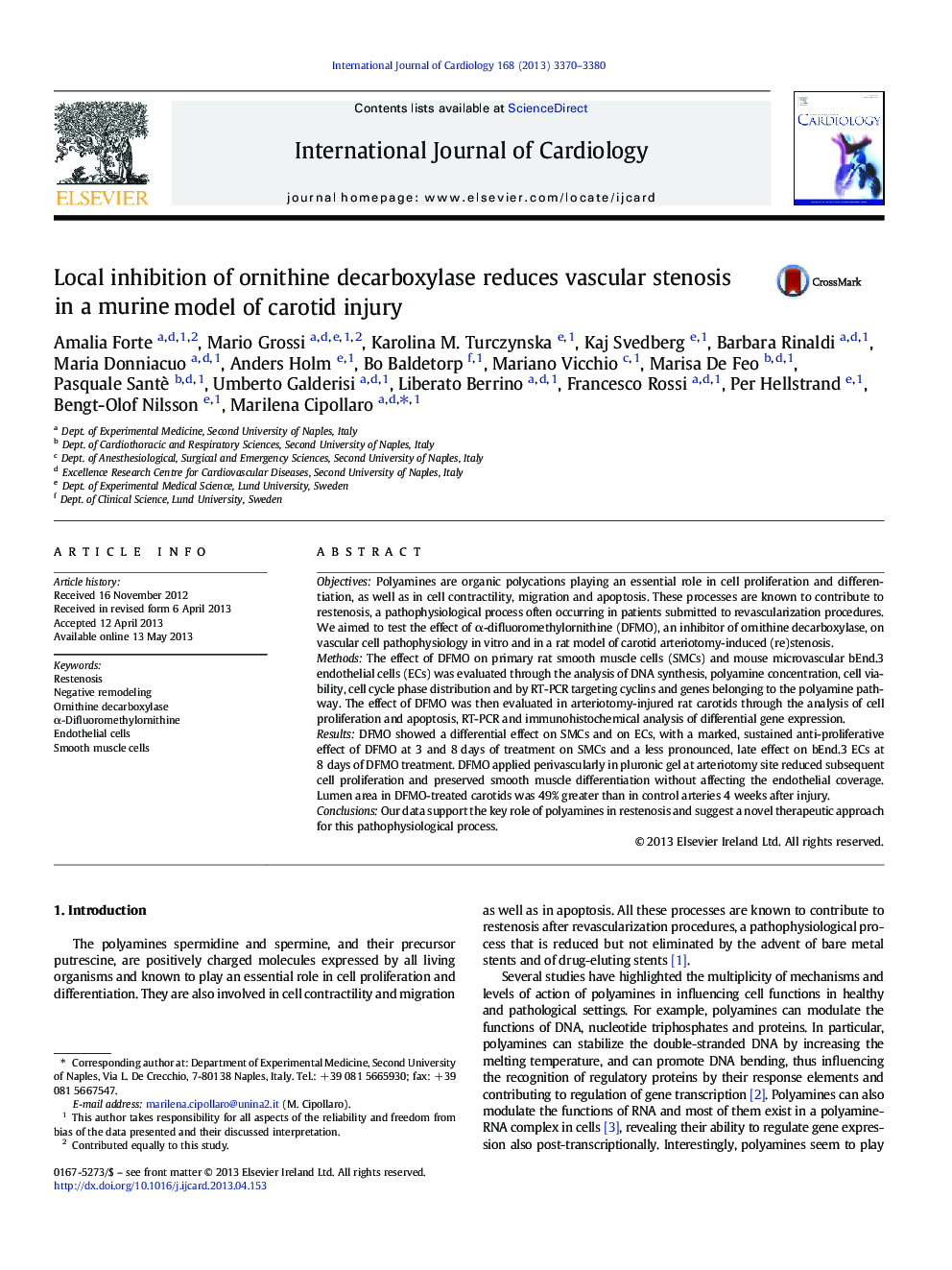| Article ID | Journal | Published Year | Pages | File Type |
|---|---|---|---|---|
| 5973640 | International Journal of Cardiology | 2013 | 11 Pages |
ObjectivesPolyamines are organic polycations playing an essential role in cell proliferation and differentiation, as well as in cell contractility, migration and apoptosis. These processes are known to contribute to restenosis, a pathophysiological process often occurring in patients submitted to revascularization procedures. We aimed to test the effect of α-difluoromethylornithine (DFMO), an inhibitor of ornithine decarboxylase, on vascular cell pathophysiology in vitro and in a rat model of carotid arteriotomy-induced (re)stenosis.MethodsThe effect of DFMO on primary rat smooth muscle cells (SMCs) and mouse microvascular bEnd.3 endothelial cells (ECs) was evaluated through the analysis of DNA synthesis, polyamine concentration, cell viability, cell cycle phase distribution and by RT-PCR targeting cyclins and genes belonging to the polyamine pathway. The effect of DFMO was then evaluated in arteriotomy-injured rat carotids through the analysis of cell proliferation and apoptosis, RT-PCR and immunohistochemical analysis of differential gene expression.ResultsDFMO showed a differential effect on SMCs and on ECs, with a marked, sustained anti-proliferative effect of DFMO at 3 and 8 days of treatment on SMCs and a less pronounced, late effect on bEnd.3 ECs at 8 days of DFMO treatment. DFMO applied perivascularly in pluronic gel at arteriotomy site reduced subsequent cell proliferation and preserved smooth muscle differentiation without affecting the endothelial coverage. Lumen area in DFMO-treated carotids was 49% greater than in control arteries 4 weeks after injury.ConclusionsOur data support the key role of polyamines in restenosis and suggest a novel therapeutic approach for this pathophysiological process.
